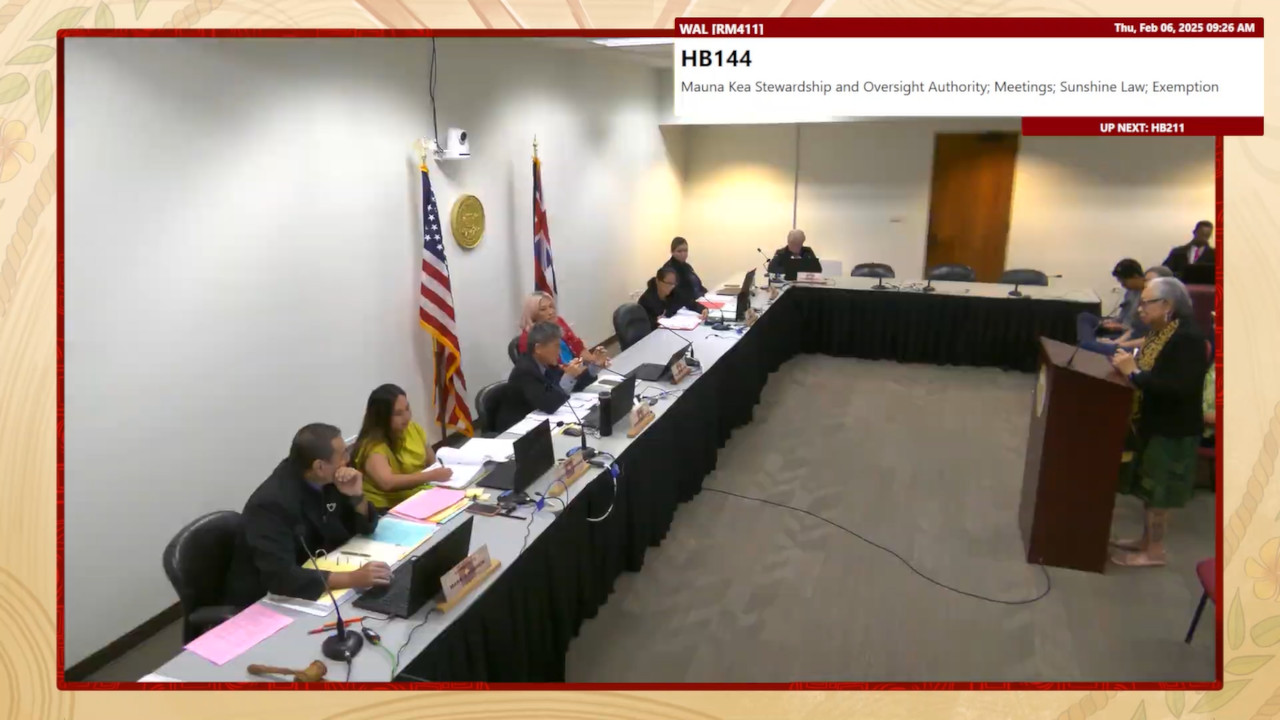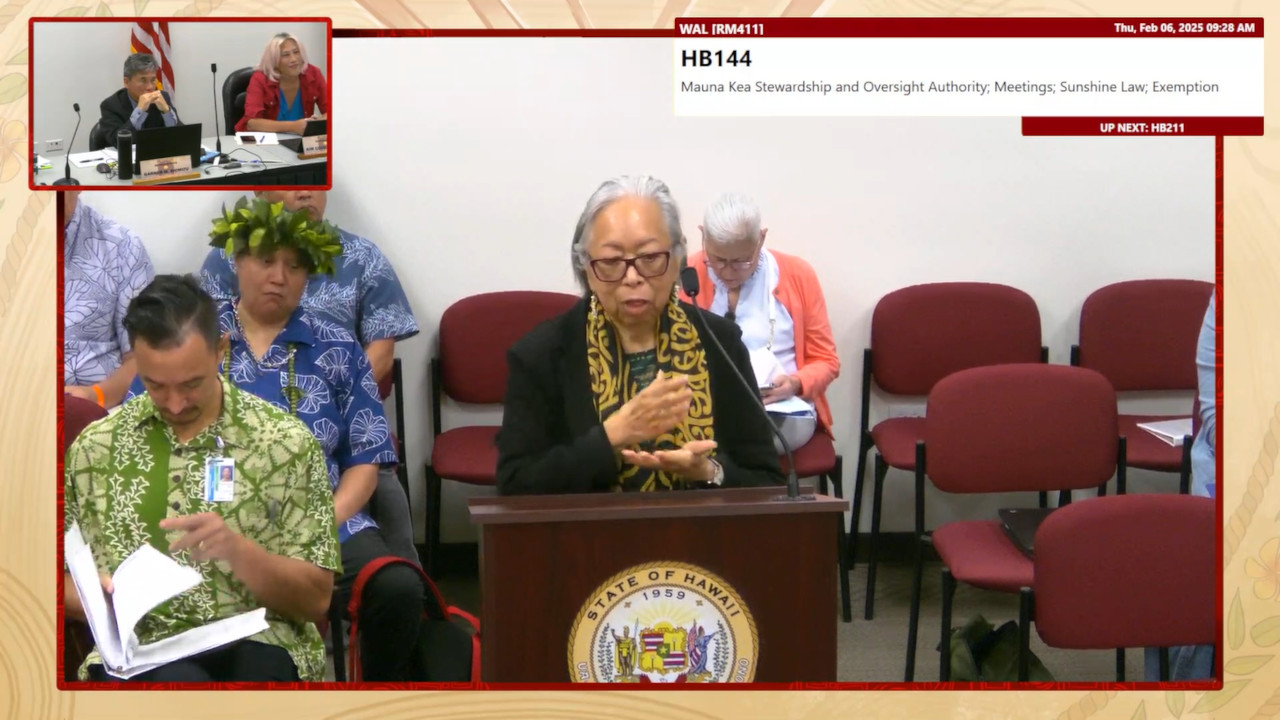(BIVN) – The Hawaiʻi State Legislature is considering a bill that would allow members of the Mauna Kea Stewardship and Oversight Authority to discuss business outside of public meetings.
On Thursday, the House Committee on Water & Land held a hearing on House Bill 144. The bill authorizes two or more members of the Mauna Kea Stewardship and Oversight Authority to meet during its transition period “regarding any matter relating to the Authority’s business; provided that no commitment to vote is made or sought and no decision-making action is taken.”
WAL Public Hearing – Thu Feb 6, 2025
The Mauna Kea Stewardship and Oversight Authority (MKSOA) was established in 2022 by Act 255, under which a period of five years was provided to transition the management of Maunakea from the University of Hawaiʻi to MKSOA.
“The bill states the legislature recognizes that it may be difficult for authority members to conduct these activities within the inflexible confines of the State’s public agency meeting laws,” HB144 reads, in the belief that the authority “should be granted some flexibility during the transition period to conduct meetings without strictly complying with” the Sunshine Law.
“We have such an enormous task,” explained the first vice-chairperson of MKSOA, Dr. Noe Noe Wong-Wilson, who was present at the committee hearing in support of the bill. “The task of transferring all the functions that the University now governs, to our authority, is so intricate that only two of us can be in a conversation with the University at any time. And so how do we make sure everybody is involved? Or more people are involved in even understanding that?”
“Right now we can only do it under one condition, and that’s for the Governor to be with us,” Wong-Wilson added.
The Office of Information Practices (OIP) expressed “serious concerns” about the bill in written testimony, saying “this proposed exemption from the Sunshine Law for everything but the Authority’s actual decision-making is not a ‘narrowly tailored’ one as suggested in the purpose statement. Rather, it is an almost full exclusion of the public from the Authority’s discussions and deliberations, contrary to the statutory intent of the Sunshine Law in section 92-1, HRS, to ‘protect the people’s right to know.'”
Other organizations like the Public First Law Center, the League of Women Voters of Hawaiʻi, and KAHEA: The Hawaiian-Environmental Alliance, opposed the bill.
“Ka Lāhui Hawaiʻi strongly urges this Committee to reject HB144,” wrote Healani Sonoda-Pale, who also testified during the committee meeting. “If enacted, this bill will set back efforts to repair the harm done to Mauna Kea and its people. True reconciliation can only be achieved through transparency, accountability, and genuine public engagement—not through closed-door meetings that exclude the very community most impacted.”
“If they don’t have enough time, enlarge the transition period beyond 2028,” testified Bianca Isaki of KAHEA. “They said they need this (bill) because they need more time. Let them have more time.”
The House Committee deferred the bill to the end of Tuesday’s agenda for decision making, “just to iron out some of the language,” said committee vice-chair, State Representative Rachele Lamosao, “and also wanting to hear a little bit more perspectives about the different issues regarding this measure.”



by Big Island Video News9:42 pm
on at
STORY SUMMARY
HONOLULU - House Bill 144 was heard by the House Committee on Water & Land on Thursday, although lawmakers have not yet given their recommendation.